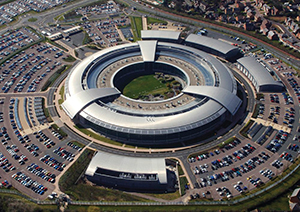Spying on MLAs?

Amid allegations of Government Communications Headquarters’ (GCHQ) authorised spying on Northern Ireland’s MLAs, agendaNi looks at the validity of spying on elected representatives.
Following the revelation that the British Intelligence Agency may be spying on elected members of the devolved institutions SDLP MLA Alex Attwood has expressed his concerns. Attwood feels the potential for GCHQ, an unaccountable body, to legally spy on Northern Irish MLAs is a very dangerous situation and one that threatens the very principles of our hard won democracy. Sinn Féin MP Pat Doherty also described the situation as an attack on democracy but stopped short of claiming he was surprised by the revelations.
The SNP’s Nicola Sturgeon has also expressed her disappointment with the news and has written to Prime Minster David Cameron about the issue. In her letter, Sturgeon expressed her belief that the confidentiality of communication between parliamentarians and their constituents is of the utmost importance and that it was just as important for members of the devolved institutions as it is for Members of Parliament and Peers in the House of Lords.
Interestingly, thanks to a 40-year-old convention known as the Wilson Doctrine, GCHQ does not have the legal power to spy on Westminster MPs or Peers. The Wilson doctrine was established during the Cold War at a time of growing concern amongst MPs that their phones were being tapped. On 17 November 1966, Prime Minister Harold Wilson appeared in the Commons to address the situation.
Wilson said there “should be no tapping whatsoever” of MPs’ phones. This convention that MPs communications should not be intercepted by police or security services has become known as the Wilson Doctrine. In 1997, Tony Blair extended the doctrine further to cover other forms of electronic surveillance such as email and all forms of warranted interception of communications. This doctrine did apply to the devolved institution until March this year, when the GCHQ introduced new internal guidelines that effectively revoked the doctrine’s protection of the devolved institutions.
Worryingly, when addressing the investigatory powers tribunal, one of the government’s lawyers, James Eadie QC claimed that the doctrine “simply cannot work sensibly” in the age of bulk interception and claimed it does not have force in law and cannot impose legal restraints on GCHQ.
The final caveat of Wilson’s speech that day in 1966 mean doubts will always persist about the continuity of the Wilson doctrine. Wilson warned that the doctrine could be removed at any time and MPs would only be briefed on this change when it was deemed safe to do so.





